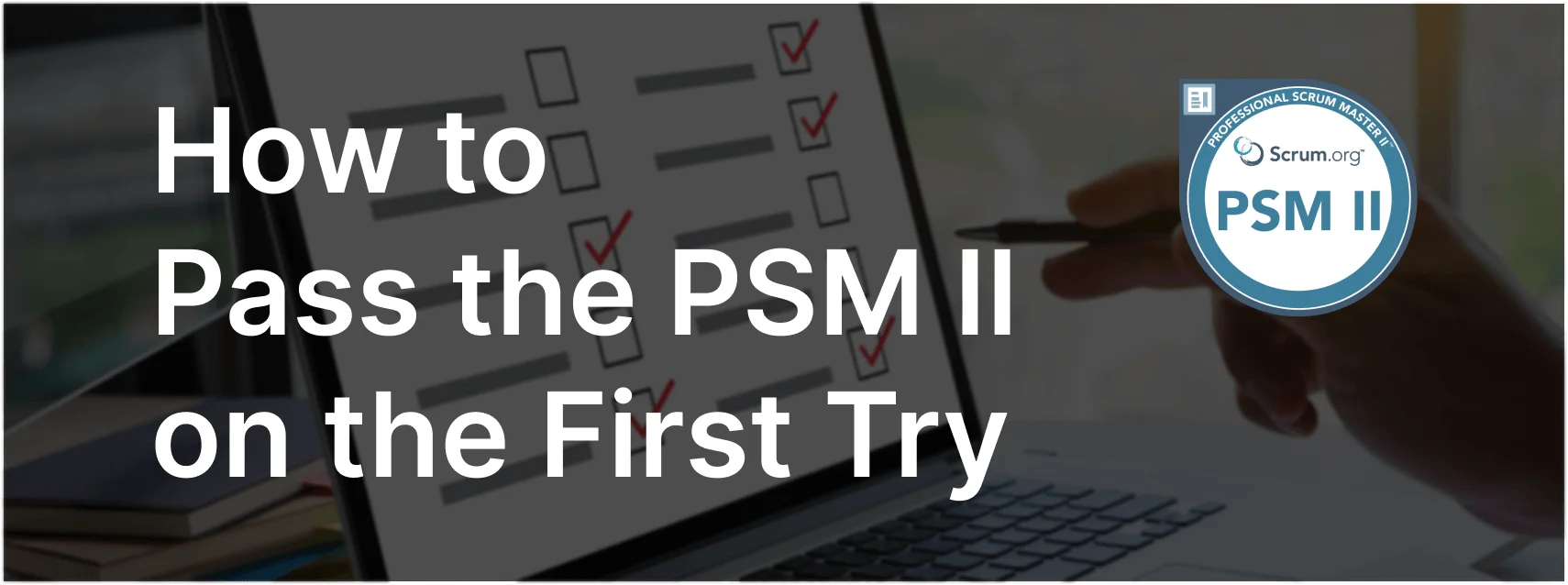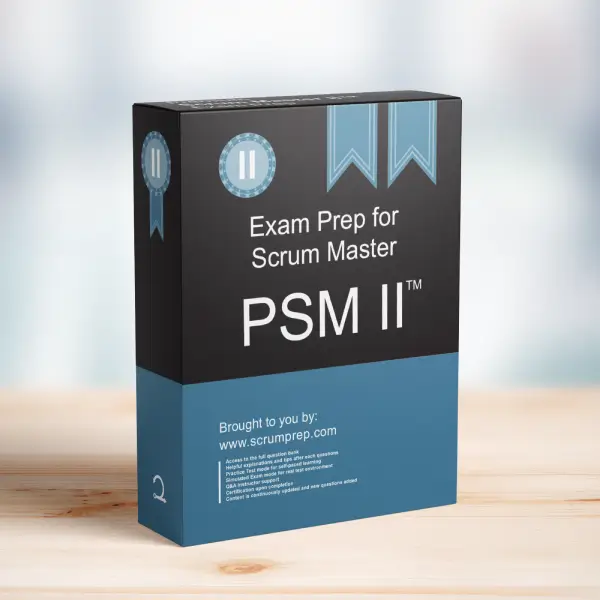Signs of a Self-Managing Scrum Team
A self-managing Scrum Team is one that takes responsibility for its own processes and outcomes, enabling creativity, collaboration, and conflict resolution without needing external management. This article explores a specific exam question about identifying signs of a self-managing Scrum Team, providing detailed explanations and insights relevant to the PSM II exam.
Exam Question
What are two signs that a Scrum Team is self-managing? (choose the best two answers)
- A. Management understands the team’s daily tasks at all times.
- B. Creativity flourishes and new possibilities are explored.
- C. The Developers always know the status of the assigned work needed to deliver the tasks committed in the Sprint Plan.
- D. The Scrum Team can resolve conflicts and continue working.
Correct Answers
B. Creativity flourishes and new possibilities are explored.
D. The Scrum Team can resolve conflicts and continue working.
Explanation
Correct Answers
B. Creativity flourishes and new possibilities are explored: A self-managing team has the autonomy to explore new ideas and innovative solutions without waiting for management approval. This autonomy fosters a creative environment where team members feel empowered to propose and experiment with new possibilities, leading to higher productivity and better solutions.
D. The Scrum Team can resolve conflicts and continue working: Self-managing teams are capable of resolving internal conflicts on their own. This ability indicates a high level of maturity and collaboration within the team, allowing them to address issues quickly and maintain continuous progress towards their goals.
Incorrect Answers
A. Management understands the team’s daily tasks at all times: This statement implies a level of oversight and micromanagement that is contrary to the principles of self-management. A self-managing team operates with a degree of independence from day-to-day management intervention.
C. The Developers always know the status of the assigned work needed to deliver the tasks committed in the Sprint Plan: While knowing the status of work is important, it does not necessarily indicate self-management. It is more about team collaboration and communication rather than autonomy and conflict resolution.
Responsibilities in Scrum
- Product Owner: Focuses on maximizing the value of the product and managing the Product Backlog. They work with the team to ensure that the vision and goals are clear but do not manage daily tasks.
- Scrum Master: Facilitates Scrum events, ensures adherence to Scrum practices, and helps the team become self-managing by removing impediments and coaching the team.
- Developers: Collaborate to deliver potentially shippable Increments each Sprint. They are responsible for managing their own work, resolving conflicts, and continuously improving their processes.
Relevance to the PSM II Exam
Understanding the characteristics of a self-managing team is crucial for the PSM II exam. It demonstrates advanced knowledge of Scrum practices and the ability to foster a self-managing environment. Mastering this concept ensures that Scrum Masters can guide their teams towards higher levels of autonomy, creativity, and conflict resolution.
Key Takeaways
- A self-managing team fosters creativity and explores new possibilities.
- A self-managing team resolves conflicts independently and maintains continuous progress.
- Self-management involves autonomy and collaboration, not micromanagement or strict oversight.
Conclusion
A self-managing Scrum Team is characterized by its ability to operate autonomously, foster creativity, and resolve conflicts independently. By understanding and promoting these characteristics, Scrum Masters can enhance their team’s effectiveness and productivity. This understanding is essential for effective Scrum implementation and success in the PSM II exam. For comprehensive preparation and practice exams, check out PSM II Exam Prep to enhance your understanding and application of Scrum principles.



